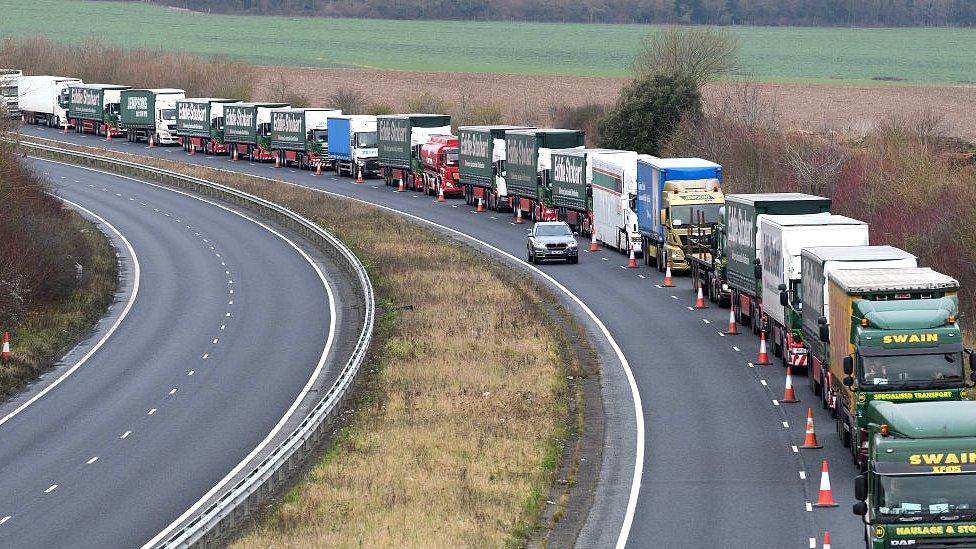Brexit: File shows no-deal 'devastating for Wales'
- Published
- comments
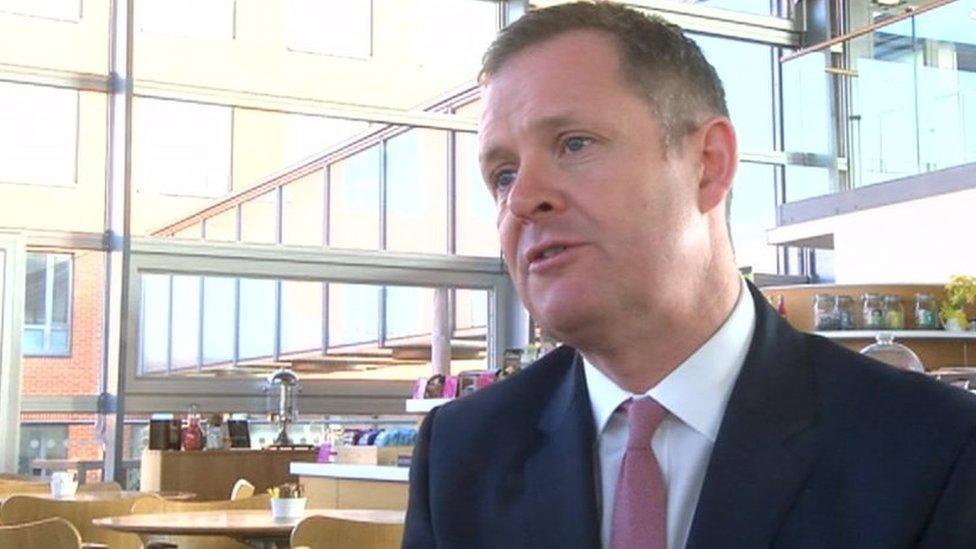
Jeremy Miles: "We support the urgent recall of UK Parliament at this time of national crisis"
UK ministers' no-deal Brexit assessment confirms leaving the EU without agreeing a deal would be "devastating for Wales", a Welsh minister has said.
MPs forced the UK government to release the Yellowhammer document, external before Parliament was suspended on Tuesday.
Wales' Brexit Minister Jeremy Miles made his comments before joining a no-deal planning meeting chaired by UK cabinet minister Michael Gove.
Welsh Secretary Alun Cairns called the Yellowhammer file a "moving dynamic".
The Yellowhammer file is redacted in parts, almost identical to a version leaked to the Sunday Times last month and warns a no-deal Brexit could lead to:
A "decrease" in certain types of fresh food and "shorter supply" of key ingredients
Price rises for food and fuel, which would "disproportionately" affect those with low incomes
"Disruption lasting up to six months" potentially affecting medicines and medical supplies
Protests and counter-protests across the UK
Lorries waiting for more than two days to cross the English Channel
Skirmishes between vessels in Welsh and other UK waters
The file also said some businesses could cease trading, the black market could grow, and some adult social care providers might fail.
Responding on Twitter, external, Mr Miles said: "The publication of the Yellowhammer assumptions tonight confirms what we have been saying for many months - that a no-deal Brexit will be devastating and destructive for the Welsh economy and our communities.
"That's why we have consistently said that no deal must be taken off table."
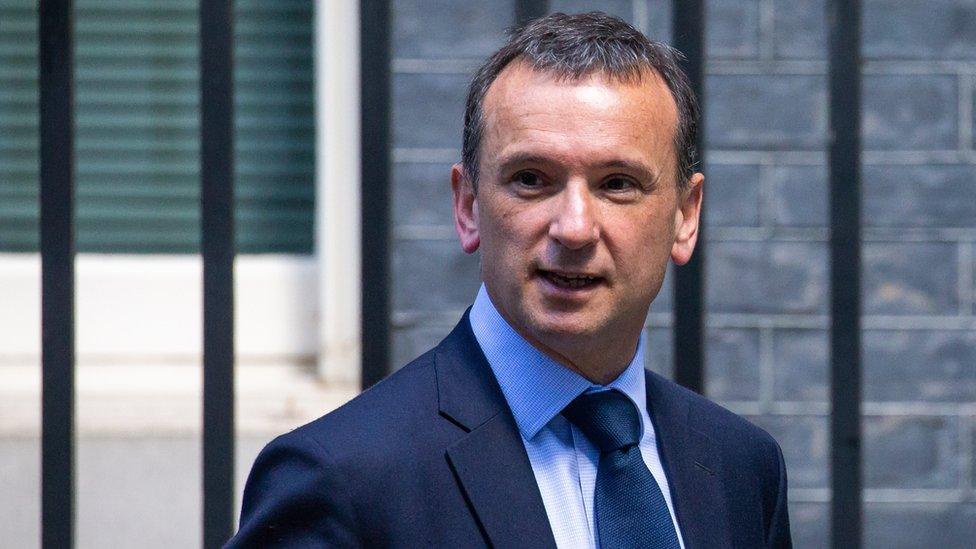
Alun Cairns: "I've seen so many copies of these sorts of scenarios"
Speaking later, after the no-deal planning meeting of UK and devolved ministers in London on Thursday, Mr Miles said he was unconvinced by the UK government approach to talks with the EU on a departure deal.
"I was hoping today that I would hear something today that would give confidence that there was a substantive advanced negotiation but I'm afraid I didn't leave with that assurance," he told BBC Wales.
But he said UK ministers had given an "assurance" they would provide more information to and "engagement" with the Welsh government on Brexit preparations.
"As a responsible government we have been planning for many many months for Wales to be as best placed as it can, but let's not pretend that any amount of planning no matter how effective is going to be able to mitigate the kind of damage we saw in that document," he said.
"We are very clear in what we say to people in Wales and the UK government about the damage a no-deal Brexit will cause Wales but we live up to our responsibilities as Welsh government doing what we can within our power and our resources to prepare Wales, and our partners across Wales, for Brexit including a no-deal Brexit."
Describing the Operation Yellowhammer document as a "moving dynamic", Mr Cairns said: "I've been in the cabinet for more than three years, where I've seen so many copies of these sorts of scenarios.
"It is one position, a reasonable worse-case scenario, if the government didn't react and the reality is that the government is reacting".
"We have taken positive steps. We are on track to make sure there is a smooth exit from the European Union - preferably with a deal - but if not we can honour the demand which came from the Welsh public by the leaving the European Union without a deal in a smooth way".
He was pressed on the warning, in the original version of the document, that major oil refineries could be forced to close under new trade terms planned in the event of no deal.
Asked if the Valero oil refinery in Pembrokeshire was "safe", he replied "yes" and when asked if it would close down, he replied "no".
Michael Gove offered assurances on no deal planning on visit to Holyhead last month
Earlier, Plaid Cymru economy spokesman and Ynys Mon AM Rhun ap Iorwerth said no deal "risks a serious downturn in trade through Holyhead and a significant threat to jobs, quite aside from the fact that if lorries have to queue up to travel between Holyhead and Dublin, we risk seeing Ynys Môn turned into a car park".
"And on top of that, the document fails to make any assessment at all of how a crash out Brexit would affect Ynys Môn. What that surely means is that the UK Government is doing absolutely nothing to mitigate any of those effects," he said.
Monmouth Conservative MP David Davies dismissed the document as "the words of the civil servants giving a worst case scenario, just as they did before we voted for Brexit".
He told BBC Radio Wales Breakfast: "We were told before we voted that if we voted, not if we left the EU but if we voted to leave the EU, there would be huge rises in unemployment, house prices would collapse and the economy would start failing."
Mr Davies, a leading campaigner in Wales for Brexit during the 2016 referendum, said: "We all found out that those worst case scenarios simply did not happen."
- Published12 September 2019
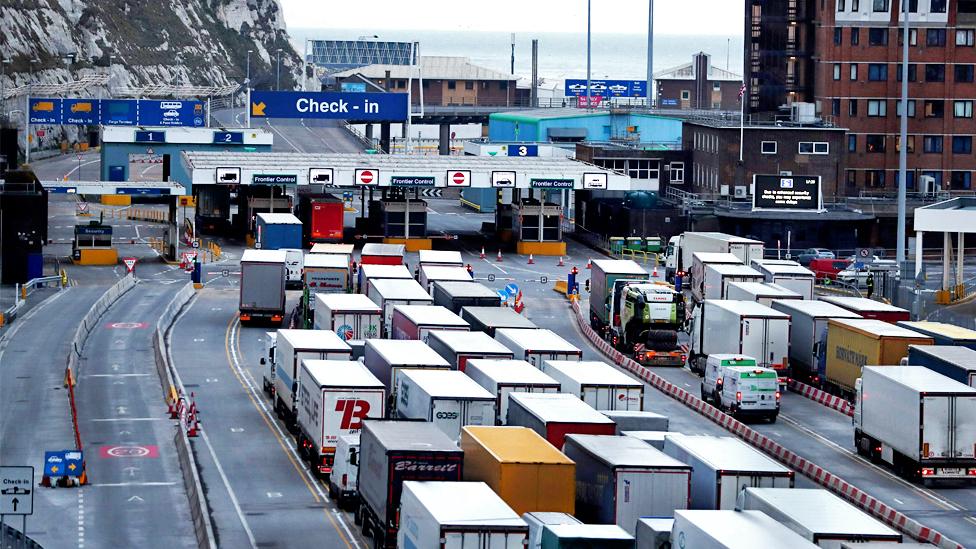
- Published17 October 2019
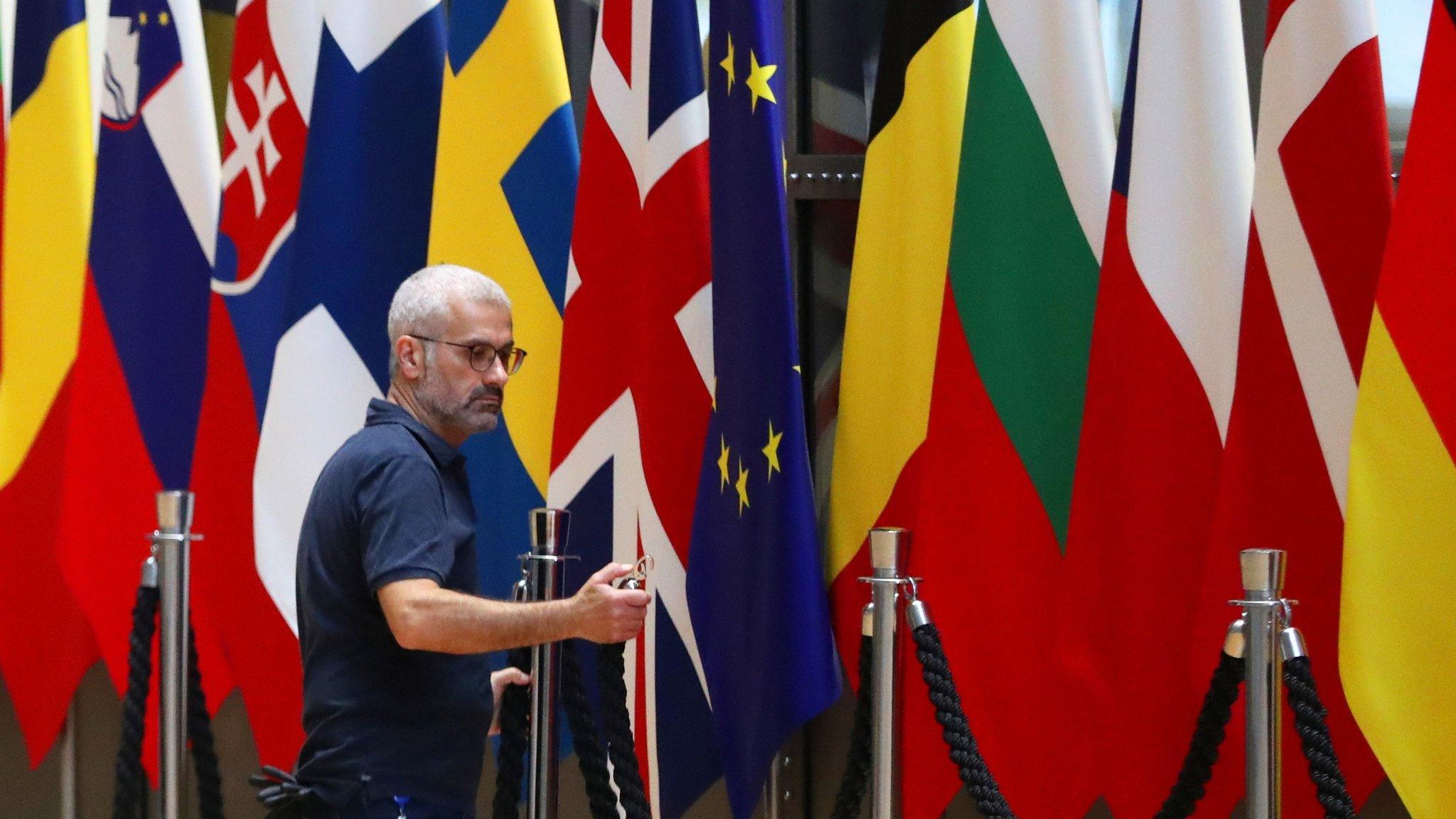
- Published20 September 2019
